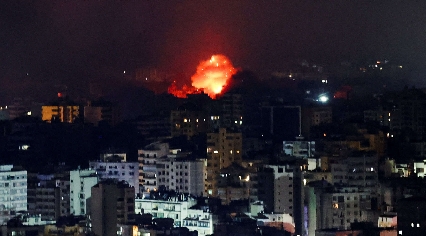
Israel has launched multiple airstrikes targeting Iran’s nuclear and ballistic missile infrastructure in what marks a significant escalation in the long-standing tensions between the two countries.
Explosions were reported early Friday morning in Tehran, Natanz, and other cities across Iran. Natanz is home to one of Iran’s main nuclear enrichment facilities.
Israeli Prime Minister Benjamin Netanyahu confirmed the strikes, stating that Israeli forces had "struck at the heart of Iran’s nuclear enrichment program," targeting both infrastructure and high-level personnel, including senior atomic scientists and military commanders.
Iranian state television reported that the head of the Islamic Revolutionary Guard Corps (IRGC), Hossein Salami, and Armed Forces Chief of Staff Mohammad Bagheri were killed in the Israeli strikes.
Meanwhile, Iranian officials told the International Atomic Energy Agency (IAEA) that there had been no abnormal radiation detected at the Natanz facility. They also said the Bushehr nuclear power plant, located on the Persian Gulf, was not targeted in the attack.
The airstrikes triggered a sharp response in the markets. Oil prices surged by 10 percent, and U.S. equity futures declined amid fears of a wider regional conflict.
Netanyahu said the operation was “very successful” and warned that it would continue “for as many days as it takes to remove this threat.” He also urged Israelis to prepare for retaliation, including potential long periods in bomb shelters.
In response, Iran’s Supreme Leader, Ayatollah Ali Khamenei, vowed severe retaliation. “Israel will pay a very heavy price,” he said. “They should expect a severe response from Iran’s armed forces.”


